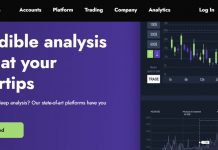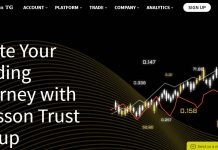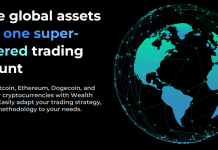Powell to be more circumstantial over rate hikes
 Jerome Powell will take over as Chairman of the Federal Reserve on February 3rd. This will be a historic appointment given his background in law rather than finance. It will be interesting to note how he reacts to questions over economic policy and what his “lawyers eye” will see compared to the more probably more proactive stance taken by his predecessors, Volcker Greenspan, Bernanke and Yellen. Each of them saw the role as being the driver of policy, commenting on such matters as banks investment rules, asset bubbles, economic theory and provision of advance guidance.
Jerome Powell will take over as Chairman of the Federal Reserve on February 3rd. This will be a historic appointment given his background in law rather than finance. It will be interesting to note how he reacts to questions over economic policy and what his “lawyers eye” will see compared to the more probably more proactive stance taken by his predecessors, Volcker Greenspan, Bernanke and Yellen. Each of them saw the role as being the driver of policy, commenting on such matters as banks investment rules, asset bubbles, economic theory and provision of advance guidance.
It is unlikely that Powell will see himself as anything other than a steady pair of hands which will probably lead to the blurring of the division between the Fed and Treasury. Traditionally, the Treasury has been responsible for the dollar and the Fed, monetary policy. Treasury Secretary, Steven Mnuchin is more involved in monetary policy than any of his predecessors which illustrates perfectly the methods of President Trump who likes to ensure that power is held in as few hands as possible.
Quite how the dollar will react to these changes will be one of the main drivers of Q1 ‘18.
Barnier on the offensive already
 Just as the U.K. was preparing a conciliatory piece of legislation would allow EU banks to continue to have branches in the U.K. rather than forcing them to be changed into subsidiaries the EU made its ideas on financial services perfectly clear.
Just as the U.K. was preparing a conciliatory piece of legislation would allow EU banks to continue to have branches in the U.K. rather than forcing them to be changed into subsidiaries the EU made its ideas on financial services perfectly clear.
The move by the U.K. would have meant a considerable saving to EU financial institutions since they wouldn’t have to have billions in capital tied up in the U.K. as their branches would have had to “stand alone” in any future financial crisis. Retaining branches means that in reaction to any future problem, banks from the EU could retrench far more quickly.
Michel Barnier poured cold water on any future financial services cooperation by saying that “there is not a single trade agreement that also encompasses financial services. This effectively means that U.K. banks will be excluded from the financial passport which allows EU banks to operate and sell financial services across the whole region.
London, as the centre of global financial services, is the jewel in the crown of the U.K. and is jealousy viewed by Paris and Frankfurt who are waiting an opportunity to take over. As concessions are made to the likes of the major U.S. investment banks that will see the likes of Goldman Sachs decamp from London to Frankfurt, Brussels will see this as a major tool in ensuring that the U.K. cannot dictate the terms of stage two of Brexit.
Error, group does not exist! Check your syntax! (ID: 4)
Q1 drivers already established
 Financial markets tend to see the year and as a natural break but rarely change direction simply due to the start of another twelve-month period. The fundamental drivers of the currency market remain the same even if technical factors are driven awry by a lack of volatility engendered by the closing of trader’s books.
Financial markets tend to see the year and as a natural break but rarely change direction simply due to the start of another twelve-month period. The fundamental drivers of the currency market remain the same even if technical factors are driven awry by a lack of volatility engendered by the closing of trader’s books.
The dollar will be a slave to interest rate differentials although, as already mentioned, it will be the definitive movements rather than expectation that will be more prevalent. Trump is likely to introduce a programme of economic stimulus as part of his overall America First strategy.
In the Eurozone, there will be continued concerns over the “rise of the right” as the German coalition is finally formed and the intentions of the far more right leaning Austrian union become clear. Italy will go to the polls in May and any further discussion of the issue of a currency to replace the common currency for domestic transactions will bring issues with Brussels.
Japan could make its first moves to remove negative interest rates which are starting to have a toxic effect on the economy. While Japan has been the “poster boy” for low rates for the entire twenty first century there are rumours surrounding a change at the BoJ that will allow rates to rise a little.








![Reltex Group Reviews: Explore business opportunities by Trading [reltexg.com]](https://comparic.com/wp-content/uploads/2023/12/image001-218x150.jpg)
![Mayrsson TG Reviews: Why Choose Crypto-Trading with Them? [mayrssontg.com]](https://comparic.com/wp-content/uploads/2023/12/image1-218x150.jpg)








